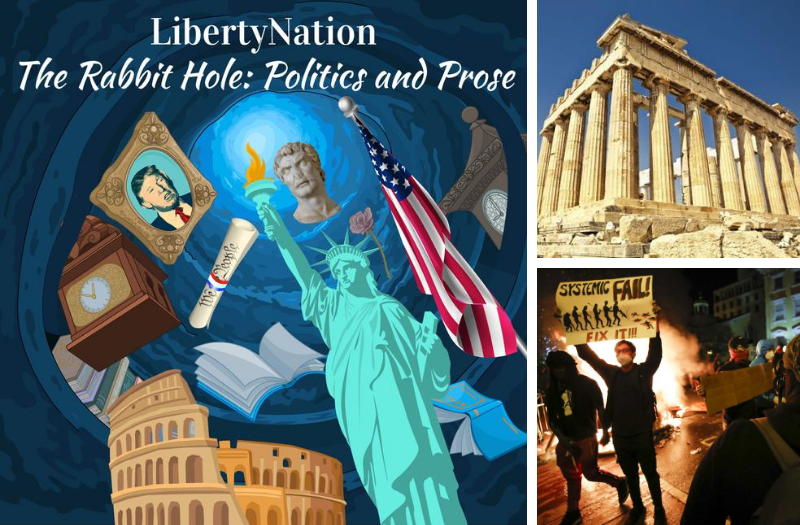

Murray Rothbard, who is credited with coining the term anarcho-capitalism, stated that the difference between free-market capitalism and state capitalism is the difference between "peaceful, voluntary exchange" and a "collusive partnership" between business and government that "uses coercion to subvert the free market".

They see capitalism and the " free market" as the basis for a free and prosperous society. On the state Īnarcho-capitalists opposition to the state is reflected in their goal of keeping but privatizing all functions of the state. Īccording to Patrik Schumacher, the political ideology and programme of Anarcho-capitalism envisages the radicalization of the neoliberal "rollback of the state", and calls for the extension of "entrepreneurial freedom" and "competitive market rationality" to the point where the scope for private enterprise is all-encompassing and "leaves no space for state action whatsoever". Professor Lisa Duggan also says that Rand's anti-statist, pro–"free market" stances went on to shape the politics of anarcho-capitalism.

According to Oliver, anarcho-capitalism is a political theory which logically follows the philosophical conclusions of Objectivism, a philosophical system developed by Russian-American writer Ayn Rand. ( Learn how and when to remove this template message)Īuthor J Michael Oliver says that during the 1960s, a philosophical movement arose in the United States that championed "reason, ethical egoism, and free-market capitalism". JSTOR ( July 2020) ( Learn how and when to remove this template message).Please improve this section by adding secondary or tertiary sources.įind sources: "Anarcho-capitalism" – news This section relies too much on references to primary sources. Anarcho-capitalism is usually seen as part of the New Right. Traditional anarchist schools of thought oppose and reject capitalism, and consider 'anarcho-capitalism' to be a contradiction in terms. Despite its name, anarcho-capitalism lies outside the tradition of anarchism and is more closely affiliated with capitalism, right-libertarianism, and liberalism. Anarcho-capitalists reject the libertarian socialist economic theories of anarchism, arguing that they are inherently authoritarian or require authoritarianism to achieve, while believing that there is no coercion under capitalism. Īnarcho-capitalists and right-libertarians cite several historical precedents of what they believe to be examples of anarcho-capitalism, including the Free cities of medieval Europe, Medieval Iceland, the American Old West, Gaelic Ireland, Somalia from 1991 to 2006, and law merchant, admiralty law, and early common law.Īnarcho-capitalism is distinguished from both minarchism, which advocates a night-watchman state limited to protecting individuals from aggression and enforcing private property, and anarchism, an anti-capitalist movement which holds that capitalism is incompatible with social and economic equality.
#Privatized tyranny def code#
This legal code would recognize contracts, private property, self-ownership and tort law in keeping with the non-aggression principle. Rothbard's anarcho-capitalist society would operate under a mutually agreed-upon "legal code which would be generally accepted, and which the courts would pledge themselves to follow". Rothbard synthesized elements from the Austrian School, classical liberalism and 19th-century American individualist anarchists and mutualists Lysander Spooner and Benjamin Tucker while rejecting their labor theory of value and the anti-capitalist and socialist norms they derived from it.

Īccording to its proponents, various historical theorists have espoused philosophies similar to anarcho-capitalism, but the first person to use the term anarcho-capitalism was Murray Rothbard, in the 1940s. In a theoretical anarcho-capitalist society, the system of private property would still exist and be enforced by private defense agencies and/or insurance companies selected by customers which would operate competitively in a market and fulfill the roles of courts and the police. In the absence of statute, anarcho-capitalists hold that society tends to contractually self-regulate and civilize through participation in the free market which they describe as a voluntary society. Anarcho-capitalism (or, colloquially, ancap) is a political philosophy and economic theory that seeks to abolish centralized states in favor of stateless societies with systems of private property enforced by private agencies, the non-aggression principle, free markets and the right-libertarian interpretation of self-ownership, which extends the concept to include control of private property as part of the self.


 0 kommentar(er)
0 kommentar(er)
